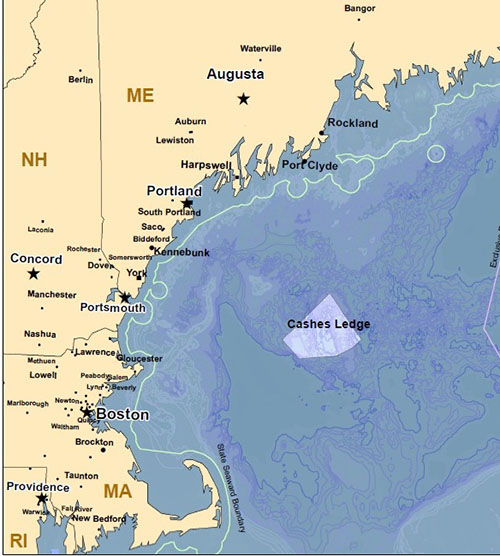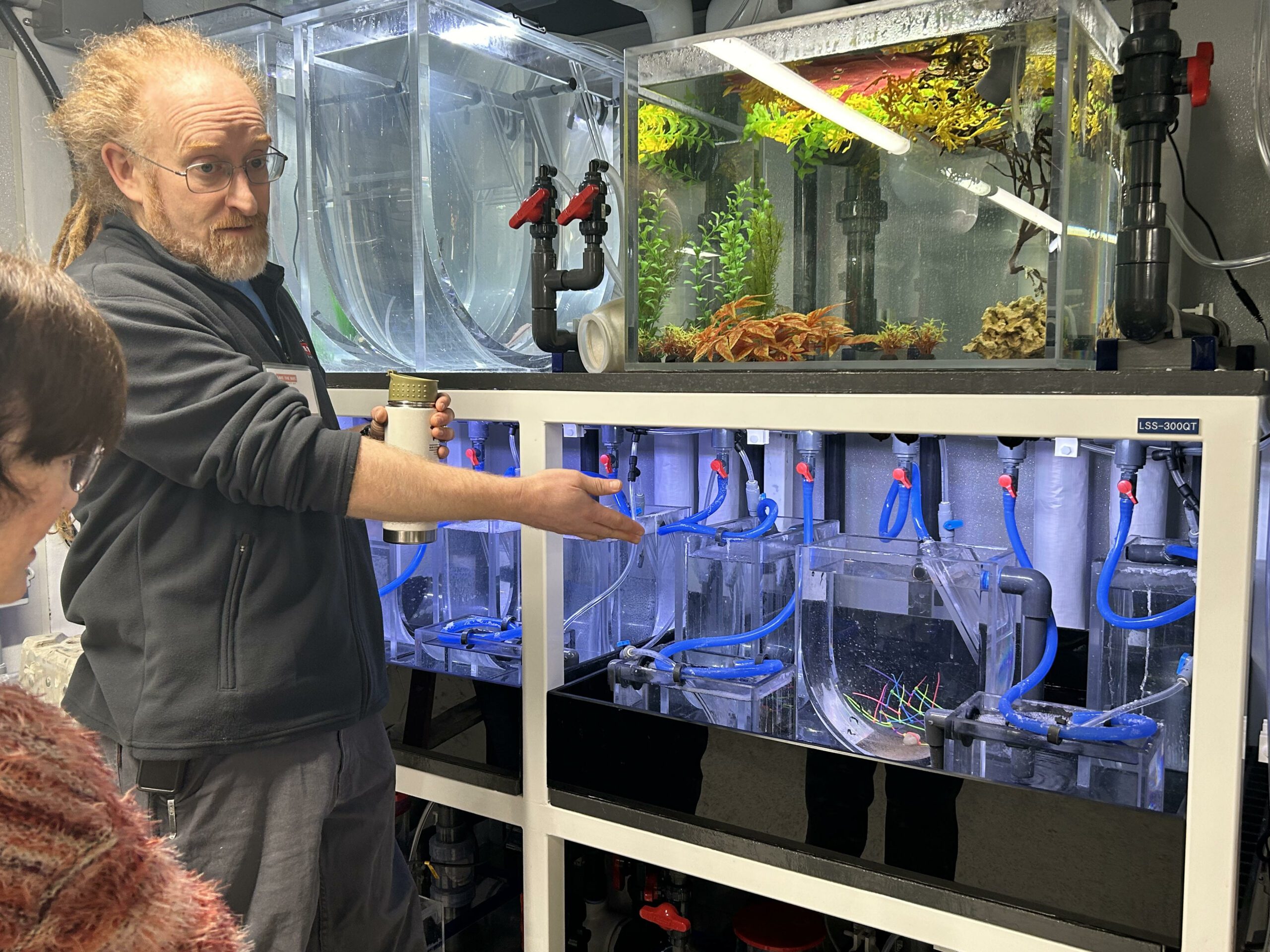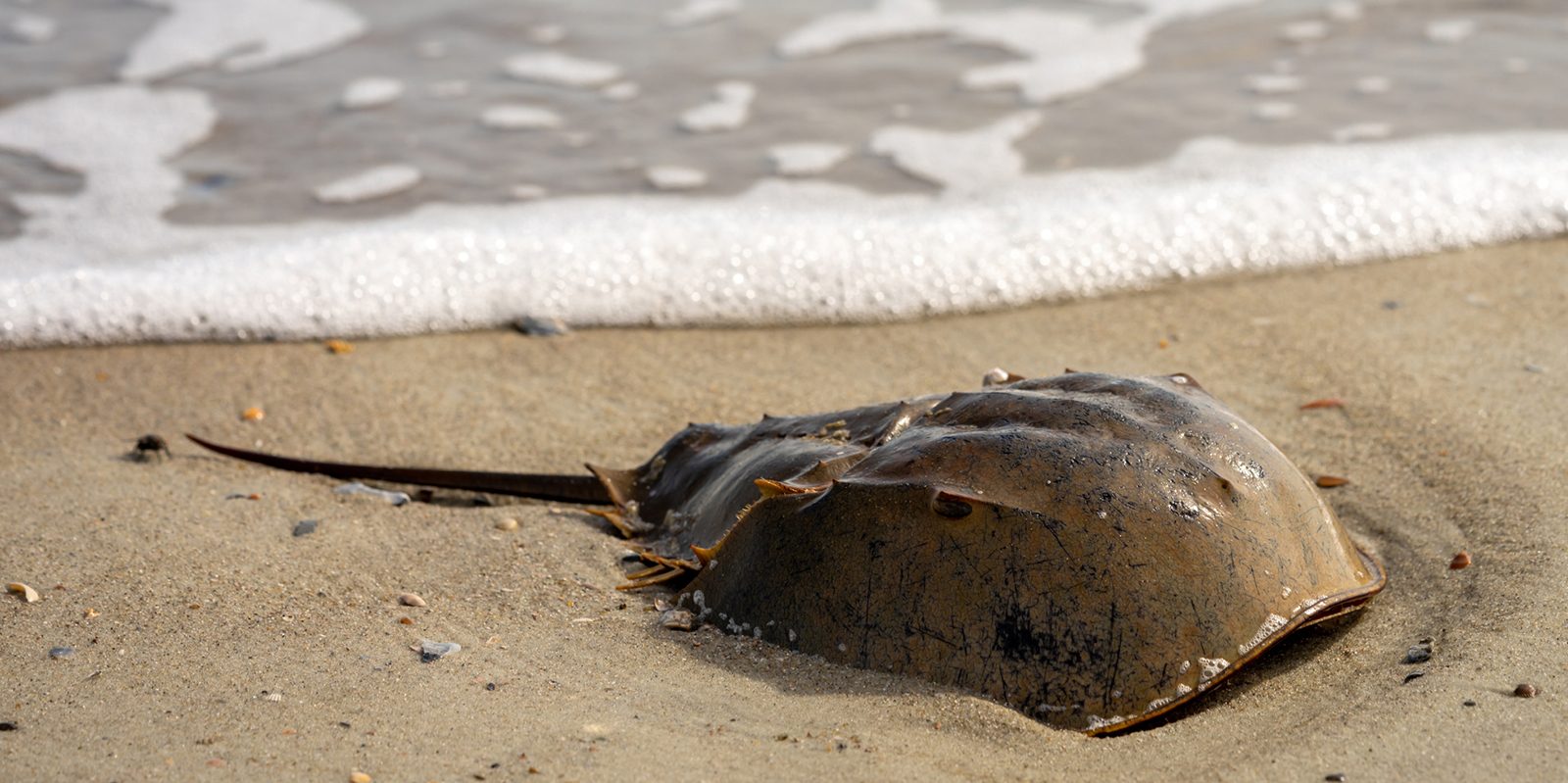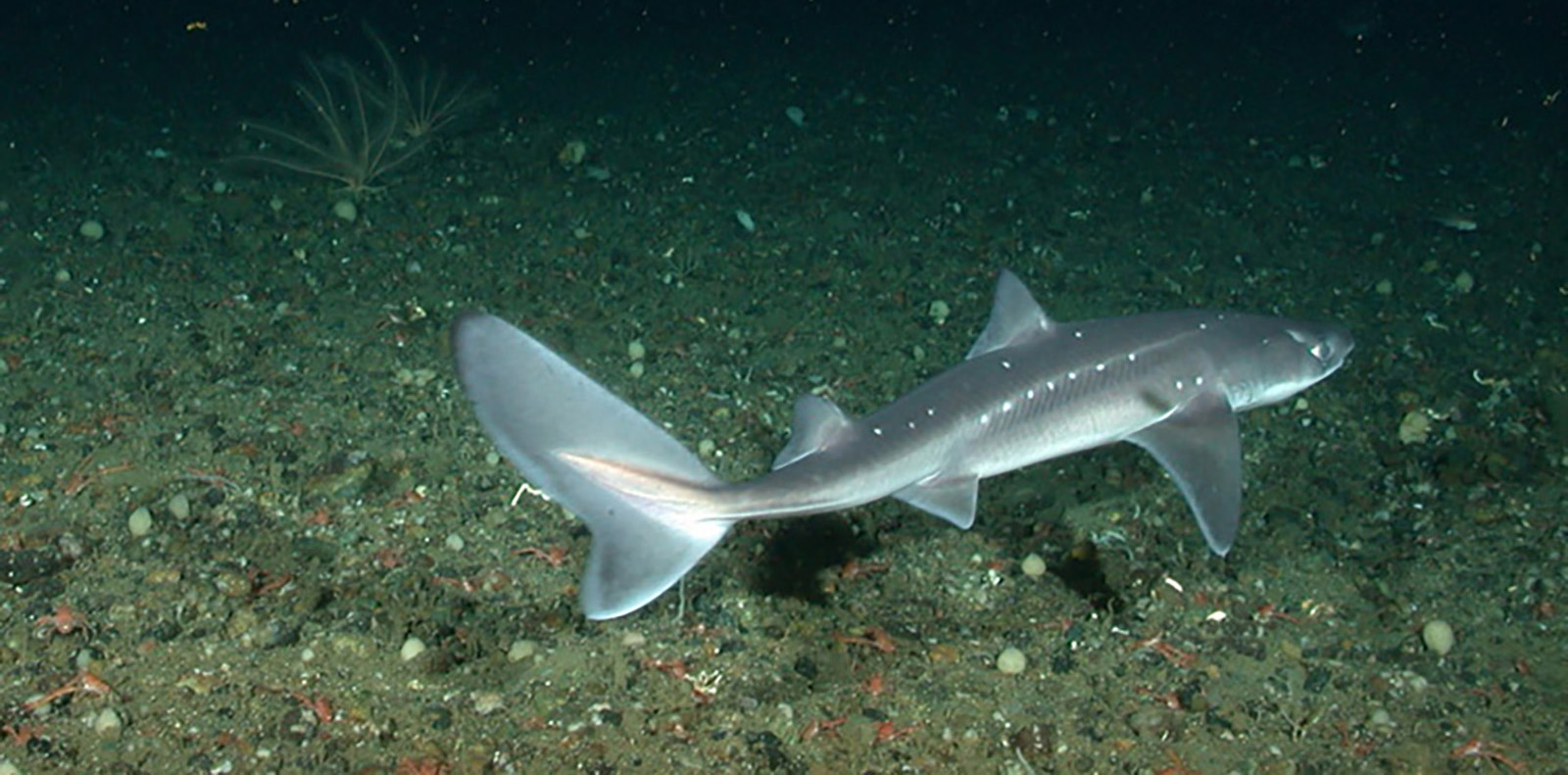Proposal to Protect Deepwater Habitat Divides Room
Environmentalists, commercial fishermen speak out at NOAA public hearing about idea to create marine national monument protection area off New England coast
September 19, 2015
PROVIDENCE — Conservationists wearing T-shirts and stickers that read “Save Our Ocean Treasures” and holding placards that read “Protect New England’s Ocean Treasurers” sat among scientists, commercial fishermen, bureaucrats and recreational anglers in a Marriott Downtown conference hall. Nobody left bloodied or in handcuffs.
As is the case with many fisheries issues, both sides can be extremely passionate. The Sept. 15 meeting hosted by the National Oceanic and Atmospheric Administration (NOAA) was certainly intense, but it also was professional.
A few hundred people filled the room to speak against or in favor of a federal proposal to create the first marine national monument on the Atlantic coast — a move that would permanently protect a network of deep-sea canyons and underwater mountains off the New England coast.
The crowd was divided between environmental groups and scientists pushing the Obama administration to permanently protect an area that starts some 100 miles southeast of Cape Cod, and commercial fishermen and industry representatives who said the monument consideration process is flawed and shrouded in mystery.
The commercial fishing industry noted that the area under consideration isn’t even entirely clear. The meeting’s agenda listed three canyons — Oceanographer, Gilbert and Lydonia — and the four seamounts south of them, but NOAA officials admitted the area in consideration could change. In fact, the two other canyons in the area — Nygren and Heezen — were mentioned, and plenty of speakers, both for and against monument designation, brought up Cashes Ledge, north of the area that was the meeting’s planned topic of discussion.
Christine Blackburn, a NOAA senior advisor, even began the meeting by saying, “There’s not a specific proposal on the table.”
Opponents also said Providence was a bad location for the hearing, because it was difficult for fishermen from Maine and the North Shore of Massachusetts to attend.

Environmental groups such as The Pew Charitable Trusts, the Conservation Law Foundation and the Natural Resources Defense Council have said they want to see all five canyons, the four seamounts and Cashes Ledge, in the Gulf of Maine, included in the proposed monument designation.
Supporters of this idea say Cashes Ledge is one of the richest marine habitats on the East Coast, serving as a vital breeding ground for cod, the region’s iconic fish, and an important feeding area for tuna and endangered North Atlantic right whales.
Although Cashes Ledge has been closed to bottom-trawling since the early 2000s, other fishing methods are still allowed there, according to Jon Witman, a professor of biology at Brown University. He said it’s time for the permanent protection of this important marine environment.
However, Terry Stockwell, chairman of the New England Fishery Management Council, and other opponents to the proposed designation said existing regulatory framework already protects Cashes Ledge and the New England Coral Canyons and Seamounts area.
Stockwell also noted that the New England Fishery Management Council voted in April to keep Cashes Ledge closed to most fishing. Drew Minkiewicz, of the Fisheries Survival Fund, and Jackie Odell, executive director of the Northeast Seafood Coalition, presented a letter in opposition to the designation. The industry group Saving Seafood has called the current proposal for a marine national monument a “solution in search of a problem.”
Supporters, however, said concerns go beyond commercial fishing, noting that current protections don’t address drilling for fossil fuels, dredging or laying underwater cables.
“It isn’t about fishing,” said Peter Baker, who directs ocean conservation in the Northeast for The Pew Charitable Trusts. “It’s about all the human impacts that can affect these places.”
Supporters of marine national monument designation have noted the importance of protecting the area’s deep-sea corals and their habitat. They also have noted that Cashes Ledge provides refuge for hundreds of marine species, many of which are rare and unique, and is critical to the vibrancy and economy of New England’s coastal communities.
The Office of National Marine Sanctuaries manages 13 national marine sanctuaries and one national marine monument. At more than 140,000 square miles, Papahānaumokuākea Marine National Monument is the second-largest protected area in the United States, stretching the length of the Northwestern Hawaiian Islands.




A hearty thanks to all who signed. These disingenuous ………. They demonize through false claims then prey on an uneducated public who believe they are doing the right thing by supporting them. Anything for the $$$$. And thats what it’s all about.
Like · Reply · 12 hrs
If this proposal isn’t about curtailing fishing effort then why are we even having this discussion. These well-endowed green groups are incredibly oblivious to the fact that there really isn’t a New England groundfishery anymore; (thanks in no small part to themselves and like-minded ranks). Their warped quest of closing even more fishing grounds shows how out of touch they are with reality.